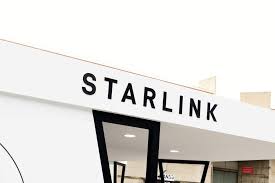Satellite internet service Starlink, owned by billionaire entrepreneur Elon Musk, officially launched in Lesotho on Monday under the local brand T-Connect Lesotho. This move comes at a time when the small Southern African nation is under serious economic pressure following drastic funding cuts from the United States and the introduction of harsh trade tariffs by former US President Donald Trump’s administration.
The Starlink project is being rolled out by T-Connect Lesotho, a licensed reseller of the service in the country. The local company is led by CEO Phelane Phomane, who described the launch as a major leap toward digital transformation in Lesotho. The launch event was held in Maseru and attended virtually by Lauren Dreyer, Vice President of Business Operations at Starlink.
T-Connect says the service will not only improve internet access across the mountainous kingdom but also create thousands of new jobs. According to Phomane, 10,000 direct jobs and 50,000 indirect jobs are expected from the expansion of Starlink in Lesotho, South Africa, and Botswana.
“This project will build artificial intelligence-powered data centres high in the Lesotho mountains,” he said. “It will be the highest data centre in the world and one of just four globally powered exclusively by Starlink.”
Phomane said internet access will be rolled out to all ten districts of Lesotho within weeks. Communities will be able to connect through public Starlink hotspots, using a special code. Instead of selling data bundles, T-Connect plans to charge users based on time spent online.
“The internet access will cost less than a loaf of bread, which is M14 (around R14),” he explained.
The company hopes to benefit from the experience of its chairperson Nolo Letele, a telecoms veteran who is credited with helping MultiChoice and DStv expand to more than 50 African countries. Letele expressed his excitement about leading the project, saying it will reach even the most remote parts of Lesotho.
“There are already Starlink installations in schools in Thaba-Tseka,” he said, referring to one of Lesotho’s most mountainous and remote districts. “Without Starlink, those schools would never have internet.”
The Development Bank of Southern Africa (DBSA) is backing the Starlink project in Lesotho and has committed to supporting similar projects in at least ten African countries. The bank’s funding is seen as vital for the expansion of infrastructure, especially in rural and under-served areas.
Acting Minister of Communications Matjato Moteane welcomed the move, saying Starlink could help overcome Lesotho’s long-standing connectivity problems caused by its tough terrain and small market size.
“Connectivity costs are high due to our geography and limited market,” Moteane said. “Any service provider that brings down those costs will have a positive impact on development.”
The launch, however, comes against a backdrop of economic distress. Lesotho has suffered significant job losses after the US government, under the Trump administration, cut funding to USAID and PEPFAR—programmes that supported health and community projects. The move was led by Trump’s controversial Department of Government Efficiency (DOGE), once headed by Elon Musk before he stepped down to focus on business.
In addition, the Trump administration imposed a 50% tariff on imports from Lesotho, one of the highest globally. This has crippled Lesotho’s textile exports and led to factory closures, loss of frontline healthcare jobs, and strain on school feeding programmes.
Critics argue that the Lesotho government, under Prime Minister Samuel Matekane, is aligning too closely with US business interests as a way of appeasing Washington. Matekane’s government granted Starlink Lesotho a 10-year operating license, sparking debate about the country’s sovereignty and economic independence.
Despite the concerns, the government and Starlink believe the project will open new digital frontiers for Lesotho, bringing high-speed internet to places that have never been connected.
